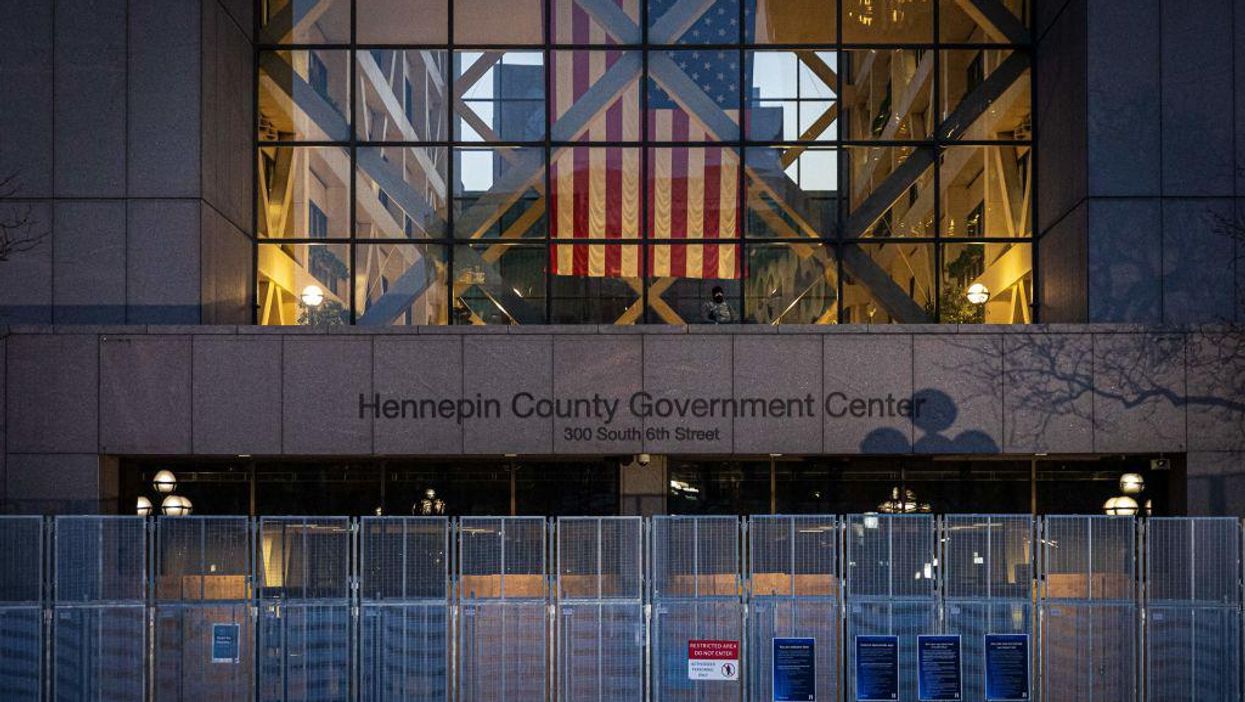
KEREM YUCEL/AFP via Getty Images

The trial is expected to last four weeks
The high-profile murder trial of former Minneapolis police officer Derek Chauvin begins today in Minneapolis, Minnesota. Chauvin stands accused of unintentional second-degree murder, third-degree murder, and manslaughter in connection with the death of George Floyd. Video of Chauvin kneeling on Floyd's neck for several minutes during the course of his arrest went viral on social media last year, leading to nationwide outrage, protests, and calls for criminal justice reform.
The trial is expected to last four weeks, and city and state leaders have prepared for widespread protests and demonstrations throughout the course of the trial. The courthouse in downtown Minneapolis where the trial is being held resembles a fortress right now, complete with concrete barriers, barbed wire, and increased police presence. The Minnesota National Guard has also been mobilized in the event that protests turn violent.
Floyd died on May 25, 2020, after he was arrested by Minneapolis officers for allegedly using a counterfeit bill. Store employees reported to police that Floyd was drunk and "not in control of himself." When officers arrived at the scene and arrested Floyd, he refused to get in the back of a police cruiser, claiming that he suffered from claustrophobia and anxiety and did not want to sit in a car.
The officers tried to forcibly place Floyd in the back of the car, but after a struggle, he ended up back outside the car (it is not clear from video whether this was because he escaped or because officers pulled him out) and ended up on the ground, still handcuffed. At this point, Chauvin knelt on Floyd's neck for several minutes while two other Minneapolis police officers secured other portions of his body and one other officer maintained watch over the growing crowd. During this time period, officers called for an ambulance to help the distressed Floyd, but Chauvin did not remove his knee from Floyd's neck. Floyd was pronounced dead about an hour after the ambulance arrived.
In order to prove the second-degree murder charge, prosecutors will need to prove that Chauvin was committing felony assault on Floyd, which will require proof that his actions in subduing Floyd were objectively unreasonable and outside the scope of his authority as a police officer. They will also have to prove that his actions were a "substantial causal factor" in Floyd's death. Alternately, the jury will be permitted to consider lesser charges of third-degree murder, if jurors find that Chauvin's actions were reckless and caused Floyd's death, or manslaughter, if they find that his actions were negligent and caused Floyd's death.
Chauvin's attorneys have indicated that they intend to argue two separate points to the jury. First, they intend to argue that Chauvin's actions in detaining Floyd were reasonable in the context of the full circumstances. Also, they intend to argue that Floyd either contributed to or caused his own death by swallowing a large quantity of fentanyl in order to prevent officers from finding it during his arrest. The autopsy report on Floyd's death blamed his death on "cardiopulmonary arrest complicating law enforcement subdual, restraint, and neck compression" but did note that fentanyl intoxication and recent methamphetamine use may have made his death more likely.
Three other officers who were involved in Floyd's death have also been charged criminally and are awaiting trial, which is currently scheduled to begin in August 2021.
Leon Wolf
Former Managing Editor, News